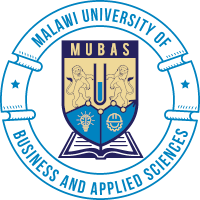CoMMPASS International Research Dissemination Conference - Call for Abstracts
The Malawi University of Business and Applied Sciences (MUBAS) through the School of Education, Communication and Media Studies is pleased to announce its inaugural International Research Dissemination Conference under the theme: Embracing Teaching and Learning Innovations in Higher Education.
The aim of this international conference is to extend the debate on the thematic areas of the CoMMPASS project by focusing on the challenges facing higher education institutions in embracing innovation and new forms of engagement for both students and trainers while promoting high-quality academic content. Delegates from the following international institutions have confirmed their attendance: Dortmund University- Germany; University Institute of Lisbon- Portugal; Makerere University- Uganda; Université Thomas Sankara- Burkina Faso; Uganda Christian University- Uganda; Universite Joseph Ki-Zerbo- Burkina Faso; University of Cape Coast- Ghana; Ghana Institute of Journalism - Ghana; Daysta University-Kenya; Haramaya University - Ethiopia; University of the Western Cape- South Africa; University of Dar es Salaam-Tanzania.
The conference is scheduled for August 13, 2024 at MUBAS campus in Blantyre, Malawi and is jointly funded by the Communicating Migration and Mobility: E-Learning Programs and Newsroom Application for Sub-Saharan Africa (CoMMPASS) Project. The conference will explore innovative strategies that improve the quality and effectiveness of teaching and learning methodologies in the higher education sphere. We, therefore, invite researchers, educators, practitioners, and stakeholders to contribute their expertise and insights to this transformative discourse. Abstract submissions are invited for both oral and poster presentation formats.
Entries covering the following areas are welcome:
1. Digital Media and Technology in Journalism Education
Papers under this sub-theme should examine the evolving role of digital media and state-of-the- art technologies like virtual reality, artificial intelligence (AI), and data journalism within the realm of journalism education, analyzing their impact on the creation, dissemination, and engagement of content with audiences.
2. Media Literacy and Media Education in the Digital Environment
This area will delve into innovative approaches, strategies, and practices aimed at enhancing students’ abilities to navigate, critically analyze, and effectively utilize media in higher education settings particularly in the contemporary digital landscape.
3. Innovative Communication for Sustainability: Climate Change, Environment and Health
This area will center on the innovative approaches to teaching and learning about issues related to climate change, environmental sustainability, and public health. Abstract submissions can highlight effective communication strategies within higher education that address these critical topics such as mobile health and agriculture.
4. Technology Integration (Blended Learning)
Authors contributing to this theme should focus on how the incorporation of technology and in particular AI, into blended learning environments is transforming conventional teaching methodologies and enriching student engagement and educational outcomes.
5. Diverse Learning Environments
This sub-theme highlights the necessity of inclusivity in education by focusing on strategies and best practices to establish diverse and inclusive learning environments that cater to the distinct needs and backgrounds of all students, thus promoting equitable access to education.
6. Cross-disciplinary Collaboration
Papers under this theme should focus on the role of interdisciplinary cooperation and synergy, and the various innovative teaching methods that foster creativity, innovation, and comprehensive educational approaches.
7. Innovative Technical and Vocational Education for Social Economic Development
This sub-theme explores novel approaches to equip students with practical skills and industry- specific knowledge, facilitating their transition into the workforce and contributing to economic progress.
8. Innovative Approaches to Learning through Observation and Real-world Application
Abstracts submitted under this sub-theme should concentrate on novel practices and methodologies that utilize "over-the-shoulder-learning" to enrich learning settings, encompassing peer-to-peer knowledge exchange, experiential learning opportunities, incorporation of digital technologies, and ethical aspects in observational learning scenarios.
Submission guidelines
Abstracts must be written in English and not exceed 300 words excluding the title, author name(s) and affiliation(s) and contact information of the corresponding author. All abstracts should encompass the following:
1. Background of the study
2. Aim or purpose of the study
3. Methodology employed
4. Results or potential findings and their implications
5. Contribution or expected contribution of the research
6. A maximum of five key words
Additionally, the abstract should clarify how the research ties into the selected sub-theme from the list provided. All submissions will undergo a blind peer-review process by the Research Sub- committee. Please submit abstracts to commpass@mubas.ac.mw.
Decisions on abstracts will be communicated to the authors by 15 July, 2024.
Important Dates:
Abstract Submission Deadline: 25 June, 2024
Notification of Acceptance: 15 July, 2024
